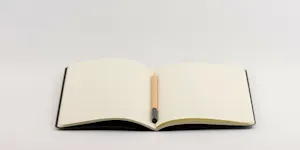What Makes This Word Tick
Ah, "dubious" – a word that instantly suggests a raised eyebrow or a skeptical stance. It’s like the poster child for uncertainty and doubt. People use it when they're not convinced and need a little more proof before jumping on board with the idea presented. It adds a layer of suspicion to any statement or situation, perfect for those moments when something doesn't quite pass the sniff test.
If Dubious Were a Person…
Imagine Dubious as a wise, silver-haired librarian who's seen it all. He wears spectacles perched at the end of his nose and is never without his trusty magnifying glass. Dubious listens intently before offering his opinion, often with a cautionary “Are you sure about that?” He’s the friend who asks, “Have you checked your sources?” before you hit ‘share’ on that Facebook post.
How This Word Has Changed Over Time
Though "dubious" has always had its roots in doubt, the nuances have shifted slightly. In the past, it was used more for things that were outright deceitful or suspect. Today, it’s often applied a bit more gently, perhaps to cast a shadow of uncertainty or skepticism without outright accusing foul play.
Old Sayings and Proverbs That Use Dubious
Unlike some other words, "dubious" doesn’t headline famous proverbs. However, it's right at home in cautionary tales like “all that glitters is not gold,” where appearances can be deceiving and deserve a closer examination.
Surprising Facts About Dubious
Did you know that "dubious" comes from the Latin word "dubius," meaning moving in two directions? It’s like the word was designed to sit firmly on the fence! It was first used in English in the middle of the 16th century—a time rife with new ideas and plenty of skepticism to go around.
Out and About With This Word
You’ll encounter "dubious" in news articles questioning political maneuverings or product claims that sound too good to be true. It's the word journalists reach for when they have justifiable doubts about the veracity of a story.
Pop Culture Moments Where Dubious Was Used
"Dubious" sneaks into pop culture now and again, often in reviews or commentary. Think of a film critic pondering the latest Hollywood blockbuster or a TV show where a detective suspects a character’s motives. It's the go-to word when something doesn’t seem quite right.
The Word in Literature
In literature, "dubious" is a favorite for detective novels and mystery genres. Authors use it to build suspense, casting doubt on the motives or integrity of characters. Agatha Christie’s astute detectives might find many situations in which a character’s alibi is just a bit too dubious to be true.
Moments in History with Dubious
The phrase "weapons of mass destruction" became notably infamous during discussions about the Iraq War, highlighting dubious claims about their presence. Moments like these reflect how "dubious" can encapsulate widespread public and international skepticism.
This Word Around the World
In languages like Spanish, "dubious" translates to "dudoso," retaining that lovely side-eye suspicion. Around the world, people use their own versions of "dubious" to express skepticism, like calling something a "white elephant" in Thailand if it's of questionable value or necessity.
Where Does It Come From?
"Dubious" traces back to the Latin "dubiosus," highlighting uncertainty and doubt. There's a certain poetic symmetry knowing the word itself has a history steeped in dual meanings and possibilities, just like its etymology suggests.
How People Misuse This Word
Sometimes folks use "dubious" when they really mean dangerous or outright false. Being "dubious" doesn’t necessarily imply risk—a situation can be dubious because it lacks clarity or certainty, but not because it’s harmful.
Words It’s Often Confused With
Skeptical: While both imply doubt, "skeptical" leans more towards a questioning attitude rather than potential deceit.
Suspicious: Suggests a stronger sense of distrust that isn’t necessarily inherent in "dubious."
Fishy: A more informal term that conveys a similar sense of something being off or not quite right.
Additional Synonyms and Antonyms
For synonyms, think of words like "uncertain," "questionable," or "equivocal." On the flip side, antonyms include "certain," "trustworthy," and "clear."
Want to Try It Out in a Sentence?
"The detective found the alibi dubious and decided to delve further into the suspect’s whereabouts that night." Here, "dubious" adds color by casting a shadow of doubt over the suspect's story.
















